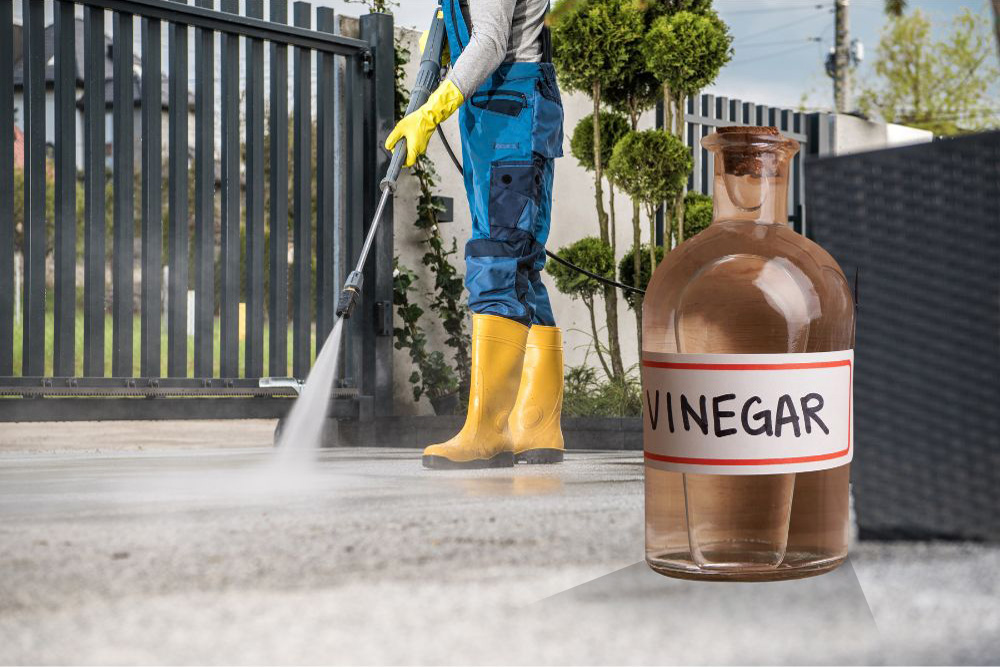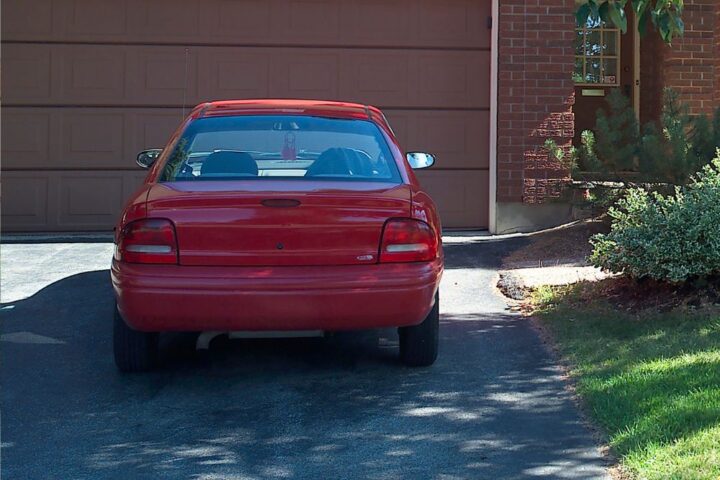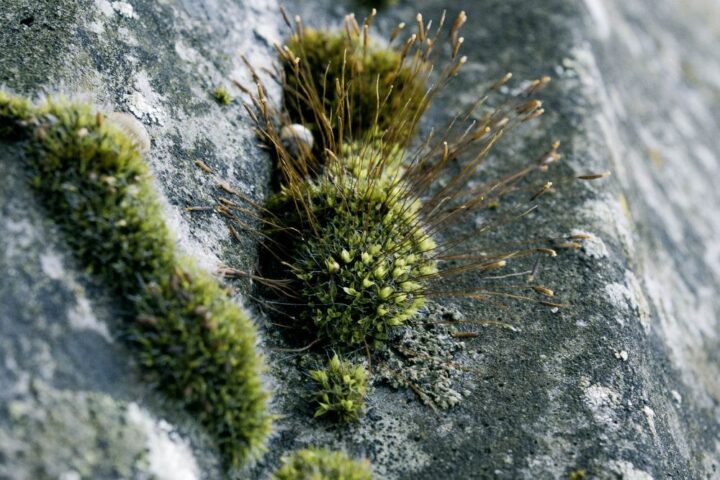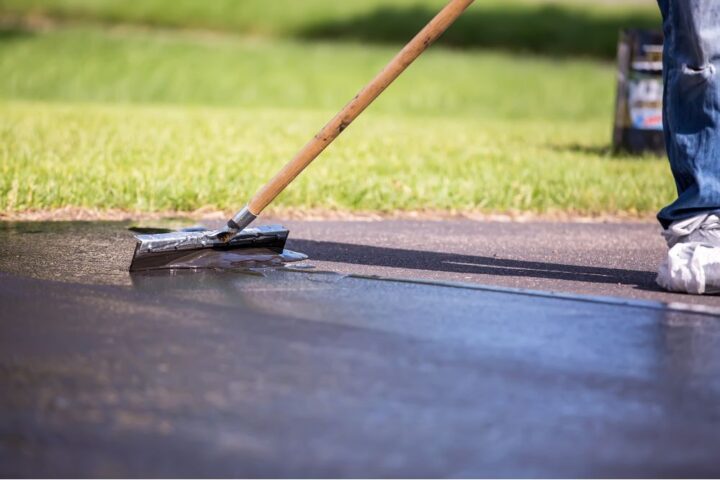Maintaining a clean and presentable driveway is essential for curb appeal and the overall appearance of your property. However, finding the right cleaning solution that is effective, safe, and environmentally friendly can be a challenge.
One popular option that has gained attention is cleaning concrete driveways with vinegar. But does it truly deliver the desired results? In this discussion, we will explore the effectiveness of using vinegar for cleaning concrete driveways, its benefits, and any precautions you should consider.
So, if you’re looking for a cost-effective and natural solution to restore the pristine condition of your driveway, keep reading.
Benefits of Using Vinegar for Concrete Cleaning
Using vinegar as a cleaning agent for concrete driveways offers numerous advantages due to its safety, affordability, and effectiveness.
Vinegar is a safe and environmentally friendly option for cleaning concrete, as it does not contain harsh chemicals that can harm the surface or the environment. Additionally, vinegar is readily available in most households, making it a cost-effective cleaning solution.
When it comes to removing stains and dirt from concrete, vinegar is highly effective. Its acidic nature helps break down and dissolve tough stains, making it a versatile cleaning agent for various concrete surfaces. The mixture of vinegar and water can be easily adjusted to suit the depth and type of stain on the concrete surface.
For deeper stains and grease on concrete driveways, mixing vinegar with bicarbonate soda can provide even better results. This combination creates a powerful cleaning solution that can penetrate and remove stubborn grease and deep stains.
To use vinegar for cleaning concrete, simply mix it with water in a spray bottle or bucket, depending on the size of the area to be cleaned. Apply the vinegar solution to the stained areas and let it sit for a few minutes to allow the vinegar to break down the stains. Then, scrub the surface with a brush or broom to remove the loosened dirt and stains. Finally, rinse the area thoroughly with water to remove any remaining vinegar residue.
Vinegar as an Eco-Friendly Alternative
When considering environmentally friendly options for cleaning concrete surfaces, vinegar emerges as a highly effective and affordable choice due to its safety, versatility, and eco-friendly properties. Distilled white vinegar is a recommended alternative for cleaning concrete driveways and other surfaces, as it offers numerous benefits without the use of harsh chemicals.
One of the key advantages of using vinegar is its ability to remove various stains and contaminants from concrete, such as paint, oil, grease, mould, and algae. This natural cleaning agent provides a chemical-free solution, making it a contextually relevant choice for those seeking eco-friendly alternatives. Moreover, vinegar is readily available and affordable, making it a cost-effective option for homeowners.
To showcase the eco-friendly properties of vinegar, let’s take a look at the following table:
| Eco-Friendly Properties of Vinegar | ||
|---|---|---|
| 1. Safe for the environment | 2. Biodegradable | 3. Non-toxic |
Vinegar not only cleans effectively but also ensures that harmful chemicals do not seep into the ground or nearby water sources, making it an environmentally conscious choice. Additionally, vinegar is biodegradable, meaning it breaks down naturally without causing harm to the environment. Its non-toxic nature further enhances its eco-friendly credentials, as it does not release harmful fumes or leave behind residue that could be harmful to humans or animals.
How Vinegar Works on Concrete Stains
Vinegar’s effectiveness in removing various stains and contaminants from concrete surfaces makes it a reliable and safe cleaning agent. When it comes to cleaning concrete driveways, vinegar is a natural and eco-friendly solution that can effectively remove stains.
Here’s how vinegar works on concrete stains:
- Distilled white vinegar: Distilled white vinegar is recommended for cleaning concrete. It can be used alone or diluted with water, depending on the depth of the stain. The ratio of water to vinegar will vary based on the severity of the stain.
- Cleaning vinegar: Cleaning vinegar is also suitable for cleaning concrete. It can be used in the same way as distilled white vinegar for general cleaning purposes.
- Baking soda mixture: For deep stains and grease on concrete surfaces, mixing baking soda with vinegar can provide extra cleaning power. The mixture should be applied to the stain and left to sit for a few minutes before scrubbing with a non-metallic brush.
- Removal of various stains: Vinegar can effectively remove stains such as paint, oil, mould, and algae from concrete driveways. However, it’s important to note that vinegar should not be used on sealed, polished, or painted concrete surfaces.
Step-By-Step Guide to Cleaning Concrete With Vinegar
To effectively clean a concrete driveway using vinegar, follow these step-by-step instructions:
- Remove loose debris: Begin by sweeping or using a leaf blower to remove any loose dirt, leaves, or other debris from the concrete surface.
- Mix vinegar and water: In a spray bottle, combine equal parts of distilled white vinegar and water. For tougher stains, you can increase the vinegar concentration by using less water.
- Spray the solution: Generously spray the vinegar and water mixture onto the stained areas of the concrete. Make sure to cover the entire surface evenly.
- Let it sit: Allow the vinegar solution to sit on the concrete for at least 15 minutes. This will give the vinegar time to penetrate and break down the stains or mold.
- Scrub and rinse: After letting it sit, scrub the concrete with a non-metallic scrub brush. For stubborn stains, you can create a paste by mixing bicarbonate soda with vinegar and applying it to the affected areas. Then, scrub the paste into the stains.
Precautions When Using Vinegar on Concrete
When using vinegar on a concrete surface, it is important to take certain precautions to prevent any potential damage. These precautions include:
- Diluting the vinegar: Since vinegar is an acidic substance, it can be too strong for direct use on concrete. To avoid harming the concrete, it is recommended to dilute the vinegar with water. This will help reduce its acidity and make it safer to use.
- Limiting exposure time: Even when diluted, vinegar can still have a damaging effect on concrete if left for an extended period. It is advisable to limit the exposure time by applying the vinegar and then promptly rinsing it off. This will minimize the risk of any adverse effects on the concrete.
- Cautious use on polished concrete: If the concrete surface is polished, extra care should be taken when using vinegar. The acidic nature of vinegar can cause erosion and damage the polish. It is essential to apply the vinegar sparingly and avoid excessive scrubbing or rubbing, which could lead to salt formation.
Vinegar’s Effects on Concrete
Using vinegar to clean concrete requires caution to prevent damage and ensure the longevity of the surface. While vinegar is a natural and effective cleaning agent, it can have certain effects on concrete that need to be considered. Here are some precautions to keep in mind when using vinegar on concrete:
- Dilute the vinegar: Using distilled white vinegar mixed with warm water is recommended to clean concrete. This helps to minimise any potential damage caused by the acidity of vinegar.
- Limit exposure time: Extended use of vinegar on concrete can strip off more than just surface-level dirt and stains. To prevent damage, avoid leaving vinegar on the concrete for more than 30 minutes.
- Be cautious with polished concrete: Vinegar can cause erosion and salt formation on polished concrete surfaces. It is essential to be careful and limit the use of vinegar on such surfaces.
- Avoid applying vinegar directly onto the concrete surface: Instead, mix vinegar with warm water or use a solution of vinegar and baking soda for better results.
Proper Dilution Ratios
When cleaning a concrete driveway with vinegar, it is essential to consider proper dilution ratios to prevent damage and ensure the effectiveness of the cleaning process.
Dilute vinegar with water in a 1:1 ratio for general cleaning purposes on concrete surfaces. This eco-friendly and natural solution can effectively remove grease stains and other dirt from your concrete driveway.
However, if you are dealing with tougher stains, you may need to adjust the water to vinegar ratio and use a stronger vinegar solution.
It is crucial to note that precautions should be taken when using vinegar on polished concrete, as extended exposure can cause erosion and salt formation. To prevent damage to the cement, do not leave vinegar on the concrete for more than 30 minutes.
Potential Damage Risks
To ensure the safe and effective use of vinegar on concrete, it is important to take precautions to prevent potential damage. Vinegar can be a useful tool for removing stains and dirt from concrete driveways, but it can also pose risks if not used properly. Here are some precautions to keep in mind when using vinegar to clean concrete:
- Use diluted vinegar or limit the exposure time to prevent damage.
- Extended use of vinegar can strip off more than just surface-level dirt and stains.
- Be cautious when using vinegar on polished concrete, as it may cause erosion and salt formation.
- Avoid leaving vinegar on the concrete for more than 30 minutes to prevent damage to the cement.
Tips for Maintaining a Clean Concrete Driveway
For effective maintenance of a clean concrete driveway, it is advisable to use a pH-neutral cleaner instead of vinegar on sealed, polished, or painted surfaces. While vinegar is a safe and eco-friendly cleaning agent for concrete, it may cause damage to these types of surfaces. However, for regular cleaning and maintenance, vinegar can be a great option.
To maintain a clean concrete driveway, it is important to regularly remove dirt, debris, and stains. One tip is to sweep the driveway regularly to prevent the buildup of dirt and dust. This can be done using a broom or a leaf blower. Additionally, using a pressure washer can help remove tougher stains and grime.
When dealing with stains, vinegar and water can be an effective mixture. The ratio of vinegar to water can vary depending on the depth of the stain. For lighter stains, a solution of one part vinegar to three parts water can be used. For tougher stains, a stronger solution of equal parts vinegar and water, or even adding bicarbonate of soda to the mixture, can be more effective.
Other Natural Cleaning Solutions for Concrete
Now that we have explored the use of vinegar as a natural cleaner for concrete driveways, it is important to consider other effective solutions.
Bicarbonate of soda mixed with water can be used to create a paste that tackles tough stains, while lemon juice can be applied directly to stubborn spots.
These alternative natural cleaning solutions provide additional options for maintaining the cleanliness and appearance of concrete surfaces.
Vinegar as a Cleaner
Distilled white vinegar and cleaning vinegar are recommended natural cleaning solutions for concrete surfaces, known for their effectiveness in removing stains and dirt. Here are some key benefits and uses of vinegar as a concrete cleaner:
- Vinegar can remove paint, oil, mould, algae, and even cat urine from concrete surfaces.
- It is a safe and eco-friendly alternative to harsh chemicals, making it suitable for cleaning your concrete without harming the environment.
- Vinegar is affordable and readily available, making it a cost-effective option for maintaining your concrete surfaces.
- It can be used in different mixing ratios depending on the depth of the stain, allowing for versatile cleaning options.
However, it’s important to note that vinegar may not be suitable for all types of concrete, such as countertops and polished floors. It’s also crucial to take precautions when using vinegar to prevent any potential damage to your concrete.
Baking Soda and Water
Vinegar is not the only natural cleaning solution that can effectively clean concrete surfaces; another option is using bicarbonate of soda and water. Bicarbonate of soda is a versatile household ingredient known for its cleaning properties. To clean concrete, create a paste by mixing bicarbonate of soda with water. This paste can be applied to tough stains on concrete surfaces, including grease stains. Allow the paste to sit for some time before scrubbing with a non-metallic scrub brush. Bicarbonate of soda can help remove stains and neutralise odours on concrete driveways, making it an eco-friendly and natural option.
To highlight the benefits of using bicarbonate of soda and water as a cleaning solution, here is a table:
| Benefits of Bicarbonate of Soda and Water for Cleaning Concrete |
|---|
| Eco-friendly |
| Natural |
| Effective in removing grease stains |
| Neutralises odours |
| Absorbs moisture |
Using bicarbonate of soda and water is a safe and efficient method to clean concrete surfaces while being mindful of the environment.
Lemon Juice for Stains
One effective natural cleaning solution for removing stains from concrete surfaces is lemon juice. Its acidic properties make it a great alternative for cleaning concrete and removing various types of stains. Here are some reasons why lemon juice is a good option for cleaning concrete:
- Mix lemon juice with water in a spray bottle for an easy-to-use cleaning solution.
- Lemon juice can effectively remove rust, mold, and mildew stains from concrete.
- For tougher stains, you can combine lemon juice with baking soda to create a powerful cleaning paste.
- Using lemon juice is a safe and eco-friendly way to clean your concrete, as it does not contain any harsh chemicals.
To clean your concrete with lemon juice, simply pour the mixture onto the stained area and use a scrub brush to clean it thoroughly. This will help keep your concrete looking white and clean. Unlike vinegar, lemon juice will not damage the surface of your concrete.
Frequently Asked Questions
What Is the Best Thing to Clean a Concrete Driveway With?
The best way to clean a concrete driveway is by using a combination of pressure washing, bicarbonate of soda, bleach solution, degreaser spray, power scrubbing, hot water, enzyme cleaner, oxygen bleach, or muriatic acid.
Is White Vinegar Safe for Concrete?
White vinegar is safe for concrete surfaces and can effectively remove various stains, including paint, oil, mould, and algae. It is an inexpensive and environmentally friendly option for DIY cleaning solutions on both indoor and outdoor surfaces. It is a cost-effective option, as a bottle of white vinegar usually costs around $2.50 in Australian dollars. Additionally, using white vinegar for cleaning can help reduce the use of harsh chemicals and their impact on the environment. So, next time you need to clean your concrete surfaces, give white vinegar a try!
Does Vinegar Etch Concrete?
Vinegar is an acidic cleaner that can etch concrete if used undiluted or left on for too long. However, when used appropriately, diluted vinegar can effectively clean concrete driveways, removing stains and grime while being a cost-effective and natural cleaning solution.
What Is the Best Concrete Cleaner?
When it comes to finding the best concrete cleaner, there are various alternative methods and environmentally friendly options available. DIY concrete cleaners, power washing techniques, effective stain removers, and natural ingredients can be used. Additionally, commercial concrete cleaning products, tips for preventing future stains, and professional concrete cleaning services can also be considered.
Conclusion
In conclusion, vinegar is a safe and eco-friendly option for cleaning concrete driveways. It can effectively remove stains and dirt when mixed with water and scrubbed onto the surface.
Vinegar is an affordable and readily available alternative to harsh chemical cleaners. By following the step-by-step guide and taking necessary precautions, you can maintain a clean and presentable concrete driveway using vinegar.




